Search
Search Results
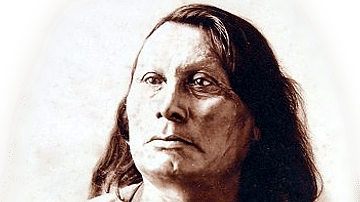
Image
War Chief Gall of the Hunkpapa Lakota Sioux
Native American Hunkpapa Lakota Sioux War Chief Gall taken by D. F. Barry and hand signed and inscribed by Barry to the famous Indian Fighter and US Army General Charles King, 1880s.

Image
Ten Caesars by Barry Strauss
Ten Caesars: Roman Emperors from Augustus to Constantine
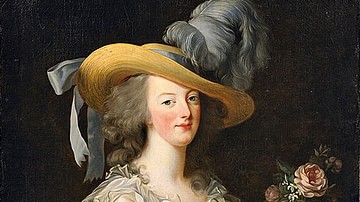
Definition
Marie Antoinette
Marie Antoinette (l. 1755-1793) was the queen of France during the turbulent final years of the Ancien Régime and the subsequent French Revolution (1789-1799). With the ascension of her husband Louis XVI of France (r. 1774-1792), she became...

Definition
Marcus Junius Brutus
Marcus Junius Brutus (85-42 BCE) was a Roman politician and a leading figure in the assassination of Julius Caesar in 44 BCE. Although he was granted amnesty after the Ides of March, a new civil war soon broke out. Brutus committed suicide...
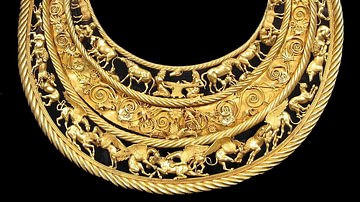
Definition
Scythian Art
Scythian art is best known for its 'animal art.' Flourishing between the 7th and 3rd centuries BCE on the steppe of Central Asia, with echoes of Celtic influence, the Scythians were known for their works in gold. Moreover, with the recent...
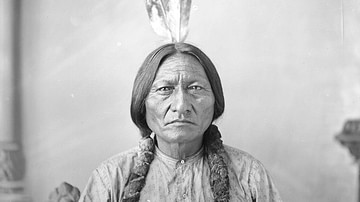
Image
Sitting Bull, 1883
Lakota Sioux leader and holy man Sitting Bull in 1883. Original photograph by D. F. Barry.
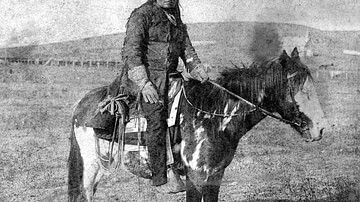
Image
Lakota Sioux Warrior Rain-in-the-Face on Horseback
Lakota Sioux warrior Rain-in-the-Face (Ité Omáǧažu) on horseback, photograph by D. F. Barry, c. 1880-1890.
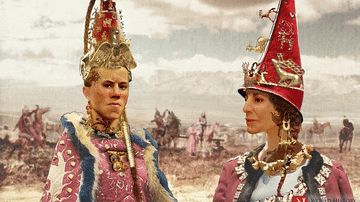
Article
Scythian Women
Scythian women garnered leadership roles and a raised level of status in their day, which is perhaps without parallel until recent times. While many female figures rose to pivotal roles in history, their rise was not a reflection of systemic...
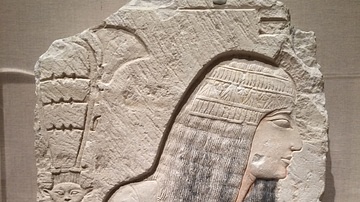
Article
Women's Work in Ancient Egypt
Women in ancient Egypt had greater rights than in any other civilization of the time. They could own land, initiate divorce, own and operate their own business, become scribes, priests, seers, dentists, and doctors. Although men were dominant...

Article
The Principate of Augustus
Augustus (r. 27 BCE to 14 CE), as the adopted son and heir of Julius Caesar (100-44 BCE), brought an end to the Roman Republic, and on 16 January 27 BCE, by Senatorial decree, he became the first Roman emperor. However, he would not be addressed...